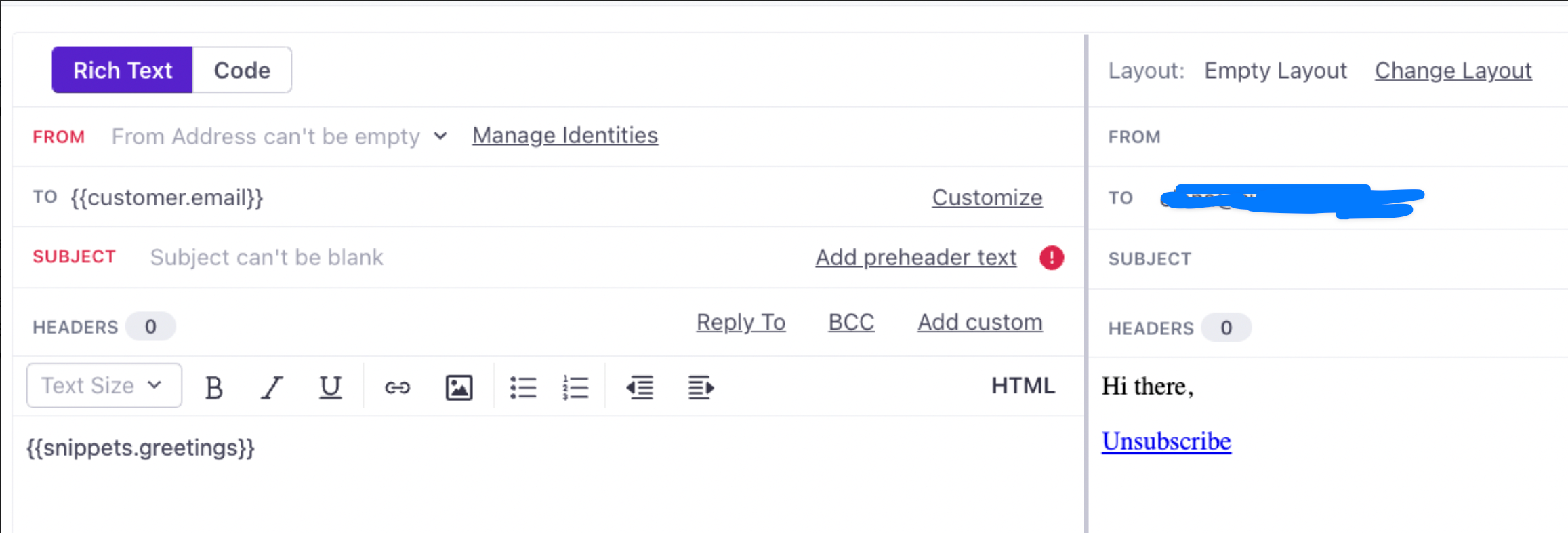Hey Community!
I wanted to share a tip that saves a lot of time for me. I used to get a lot of of failed messages with the reason “customer.first_name is missing”.
I know that there’s a liquid fallback but I don’t speak Liquid language fluently and always forget to put the fallback in place.
{{snippets.greetings}} is a game changer.
What you need to do is to create a snippet with the fallback as the value:
Hi {% if customer.first_name != blank %}{{customer.first_name}}{% else %}there{% endif %},


In the emails, instead of remembering to type the fallback every time, you will just use
{{snippets.greetings}}!